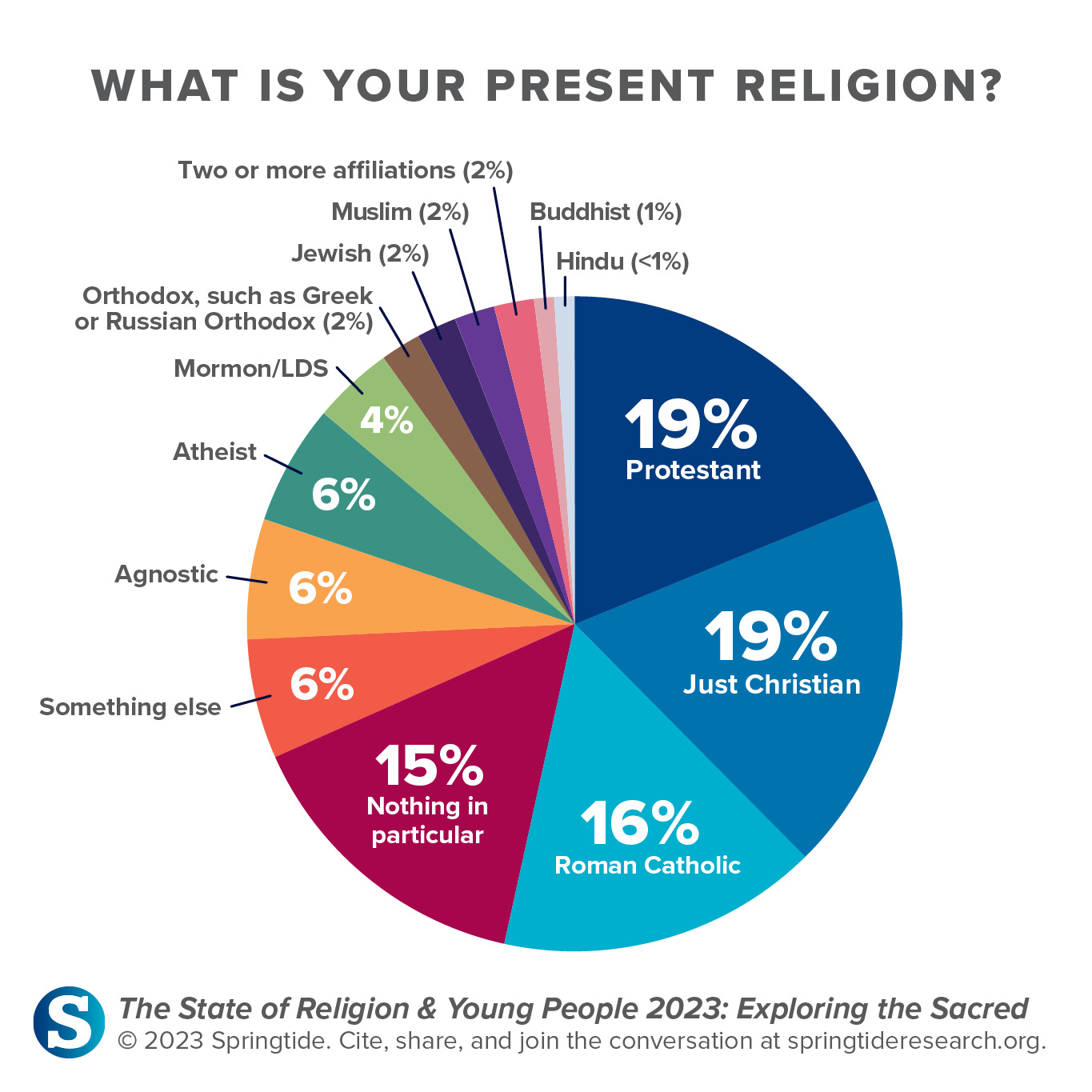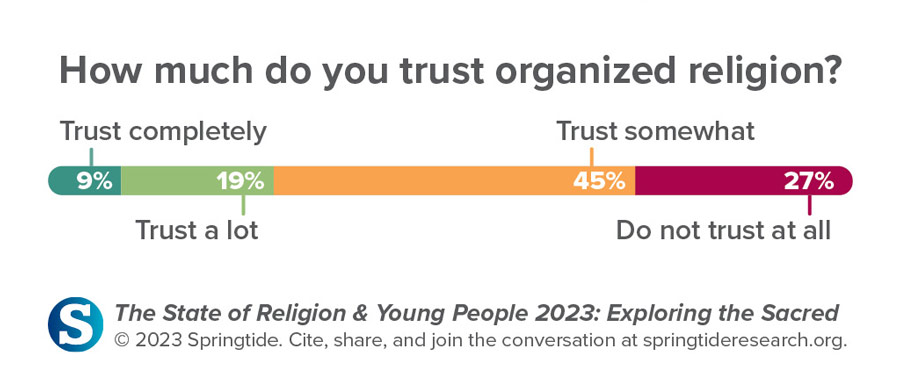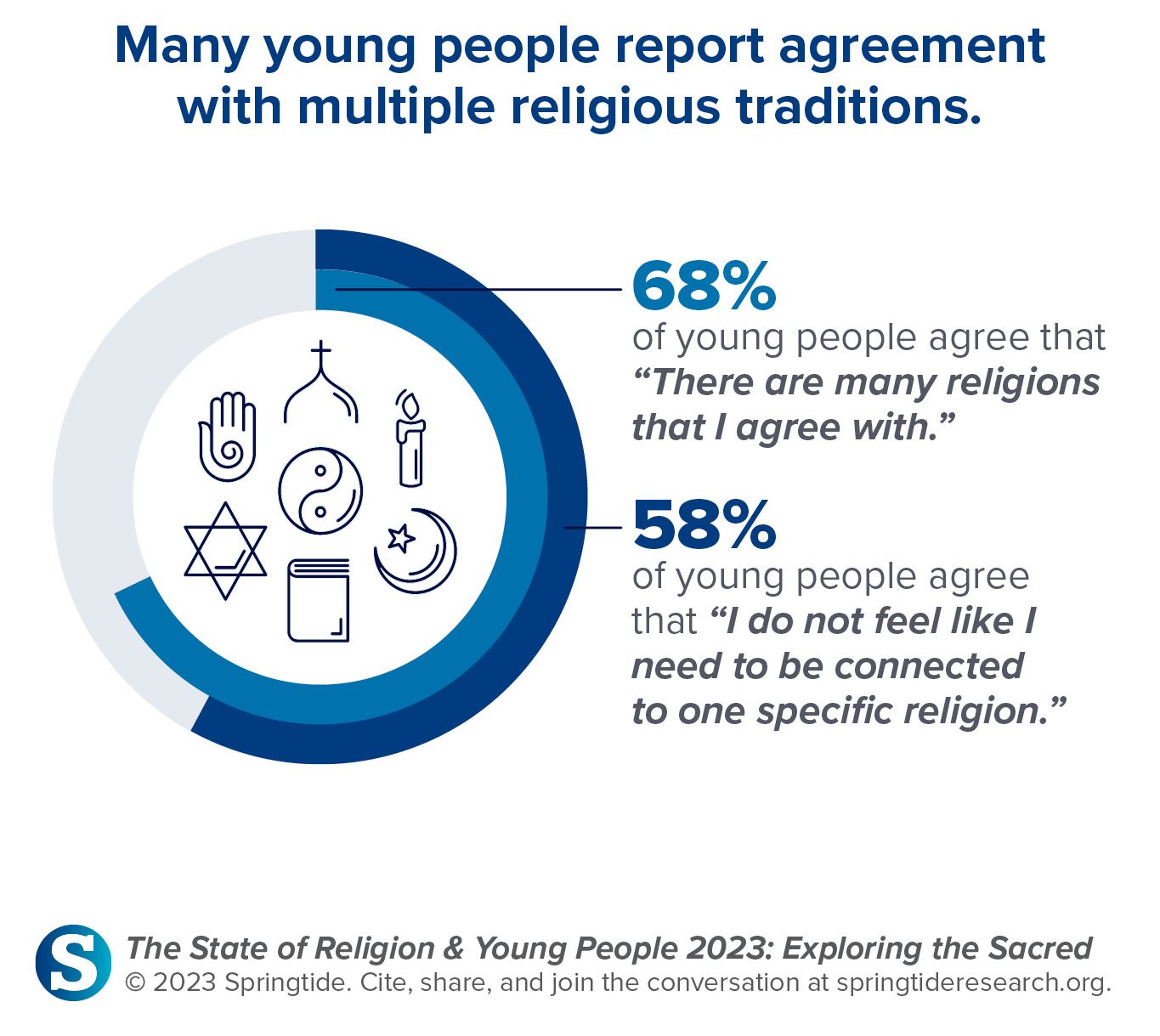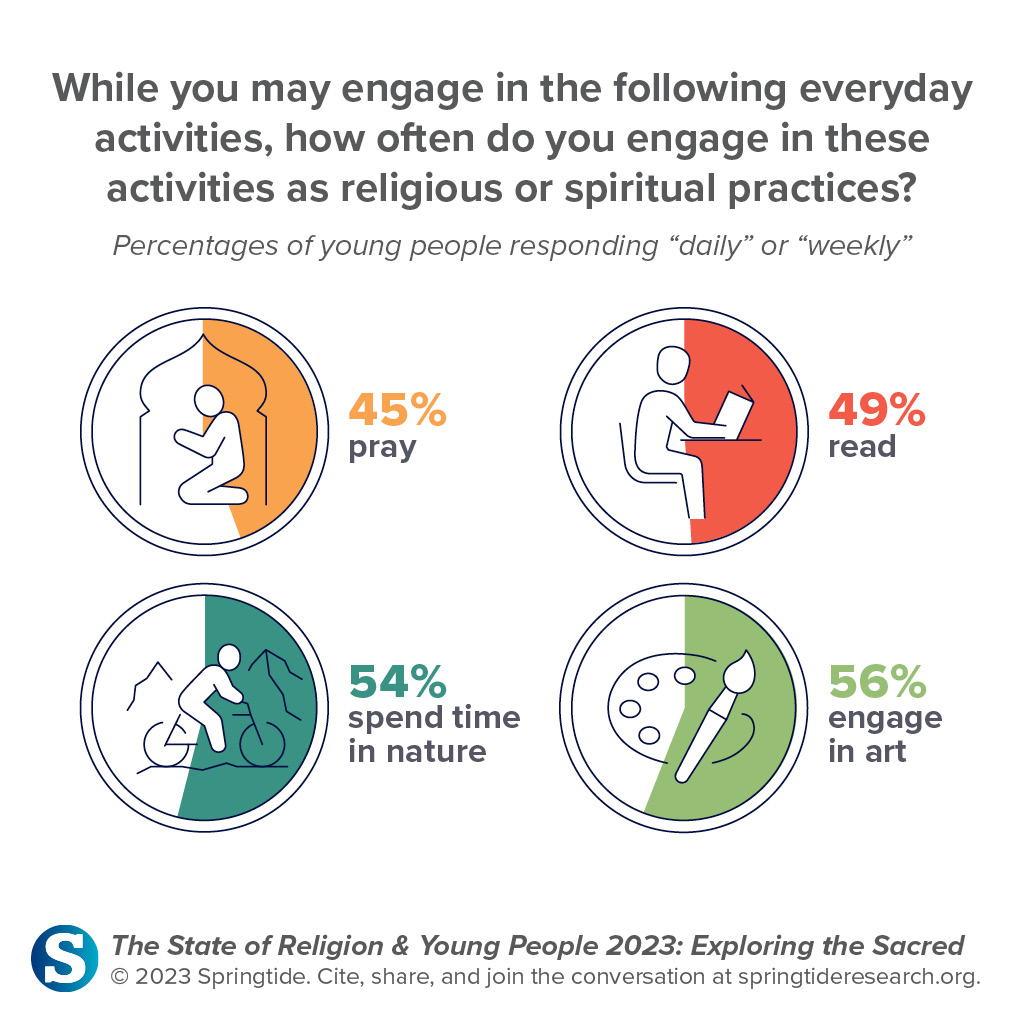
Gen Z and Spiritual Practice
Springtide data show that fewer and fewer young people are reporting regular attendance at religious services. This is on par with the larger trend of declining service attendance by people of all ages in the United States. Our findings also show that a majority of young people report either past affiliation with a religious or spiritual community, or never having been affiliated with one at all.


However, some may assume that because young people don’t attend services, they are disinterested in religion or spirituality. Our data tell a very different story—one of great interest in all forms of spirituality and significant engagement with spiritual practice.
Our previous research uncovered a pattern among young people that we term Faith Unbundled, which describes the way they construct their faith by combining elements of belief, identity, practices, and community from a variety of religious and nonreligious sources, as opposed to receiving these elements from a single system. Young people partake in beliefs and practices in an attempt to answer the big questions they’re facing, to help them further discover identity or purpose, or to find sources of meaning.
Their willingness to entertain elements from a number of different religious and spiritual traditions signals an openness to religion and spirituality.

Our data show that young people engage in a number of spiritual practices, and not just from a single source or faith tradition.

Below, three young people share their thoughts on spiritual practice:
I’m often searching for moments of connection to the greater universe. I find them in quiet moments where I’ve been writing poetry or when I’m near the ocean and in the natural world.
—Emily, 19
I listen to music [as a spiritual practice] because as the music progresses, it makes me think more about God’s character and who God is. I guess to some extent it primes my heart for spending time with God.
—Naima, 24
Many hobbies or activities have sacred elements to them. Even just conversations with your family or other day-to-day moments can be sacred. You don’t have to go to a synagogue or church or mosque.
—Rhett, 22
Want to learn more about young people’s religious and spiritual lives? Check out The State of Religion and Young People 2023: Exploring the Sacred.



